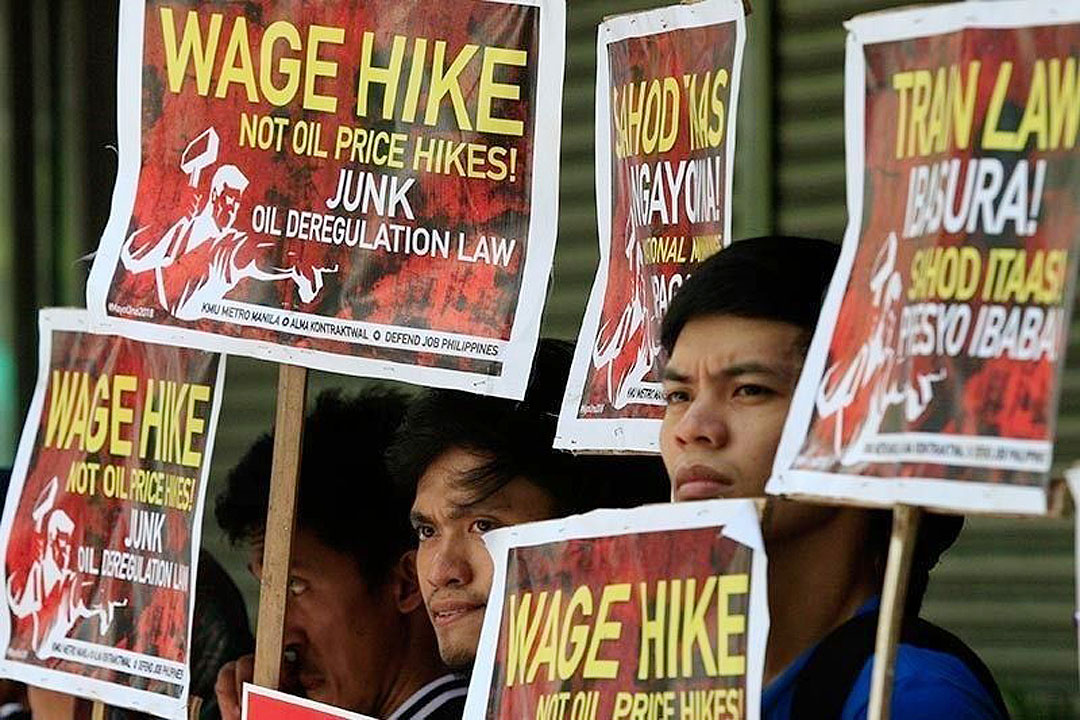NCR minimum wage exceeds poverty threshold — DoLE

By John Victor D. Ordoñez, Reporter
THE Department of Labor and Employment (DoLE) said the P40 minimum wage hike in the National Capital Region (NCR) has brought pay above the poverty threshold, based on 2021 data.
“To ensure that it meets the basic needs of a family, the minimum wage is set higher than the regional poverty threshold for a family of five members,” Labor Undersecretary Benedicto Ernesto R. Bitonio, Jr. told BusinessWorld in an e-mail.
“It also ensures that there is sufficient space for collective bargaining and other bipartite mechanisms for establishing better working terms and conditions, including wages.”
Citing the Philippine Statistics Authority, Mr. Bitonio said the poverty threshold for a family of five in Metro Manila was P452 per day in 2021.
Last week, the Regional Tripartite Wage and Productivity Boards in the NCR approved a P40 increase for minimum wage earners, bringing the daily minimum wage to P610 a day from P570, taking effect on July 16.
The minimum wage was also increased to P573 for agriculture jobs and service retail establishments with 15 or fewer workers.
Labor groups maintain that the increase is not enough for workers struggling to afford basic goods.
“This only proves once again what we have been saying all these years — that the regional wage-setting mechanism is failing the working class,” Sentro ng mga Nagkakaisa at Progresibong Manggagawa Secretary-General Josua T. Mata said in a Viber message on July 1.
Mr. Bitonio said on Monday that the regional wage boards of Central Luzon, Calabarzon, the Western Visayas and the Central Visayas will likely decide on pending wage petitions by September.
The minimum living wage for a family of five in Metro Manila has been estimated at P1,008, according to think tank Ibon Foundation.
In March, the Unity for Wage Increase Now sought to raise the P570 daily minimum wage in Metro Manila to P1,100.
The Kapatiran ng Mga Unyon at Samahang Manggagawa in December filed a petition seeking a P100 increase for the capital region.
Legislators have filed bills seeking across-the-board minimum wage increases for workers in the private and agriculture sectors to help them cope with inflation.
In March, Senate President Juan Miguel F. Zubiri filed a bill seeking to increase the minimum wage for these workers by P150.
The senator has called the P40 wage hike a “wonderful development for our workers,” but called it insufficient.
The Employers Confederation of the Philippines has said a legislated wage hike should also consider workers in less formal employment, noting that private-sector workers only make up 16% of the labor force.
“Any decision to increase the minimum wage should be carefully balanced with other factors, including the ability of employers to pay, and the requirements of socio-economic development, so as not to further create negative effects to the economy,” Mr. Bitonio added.



